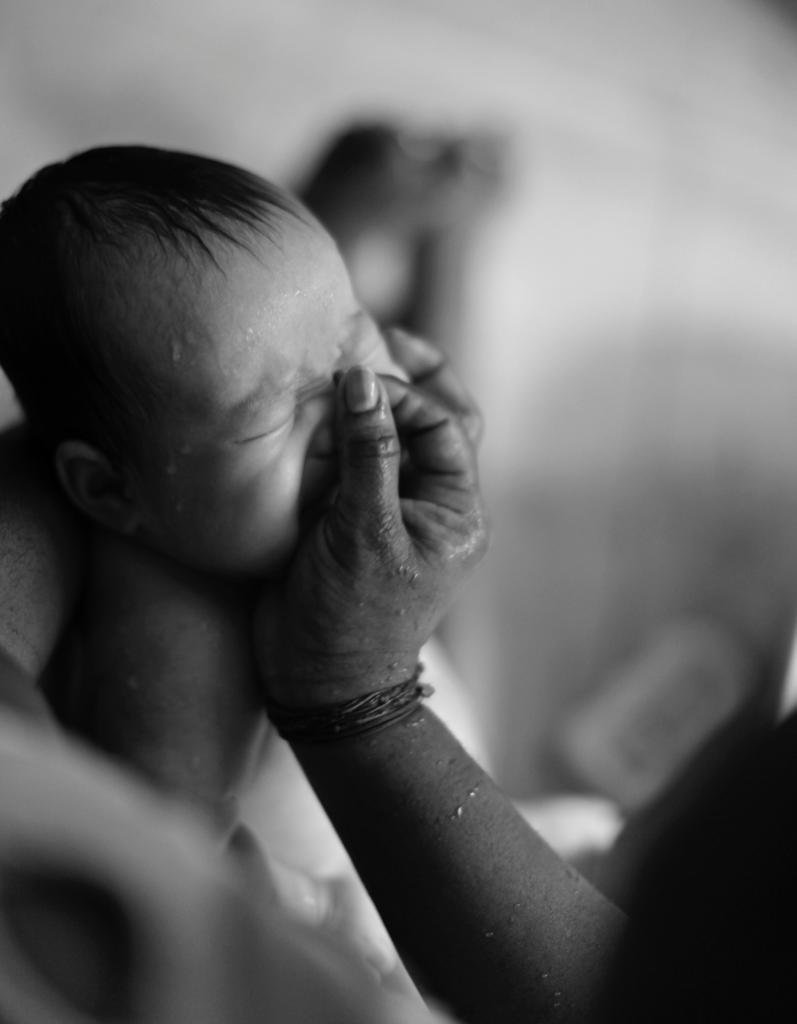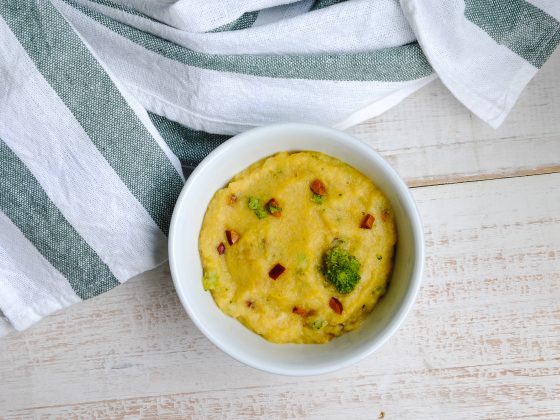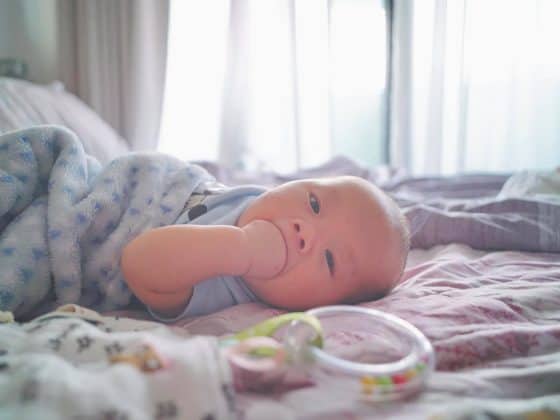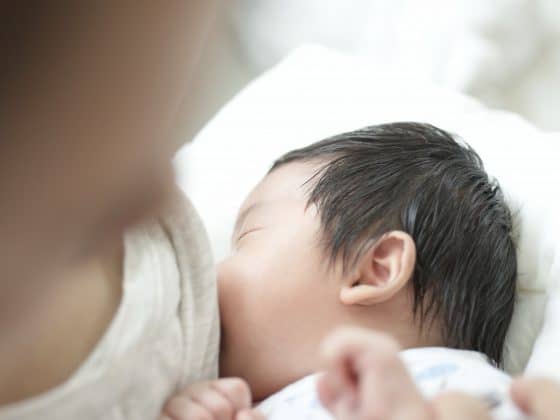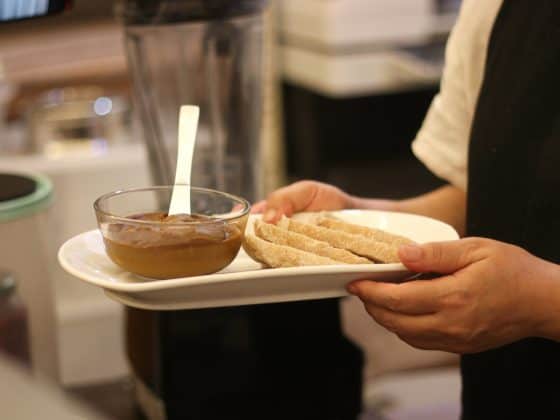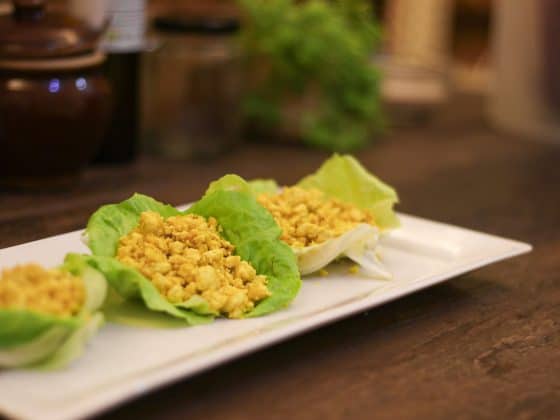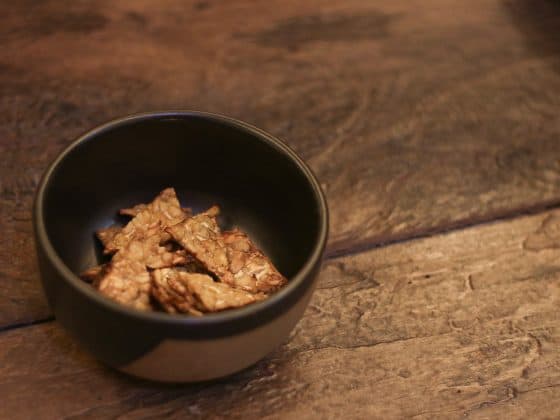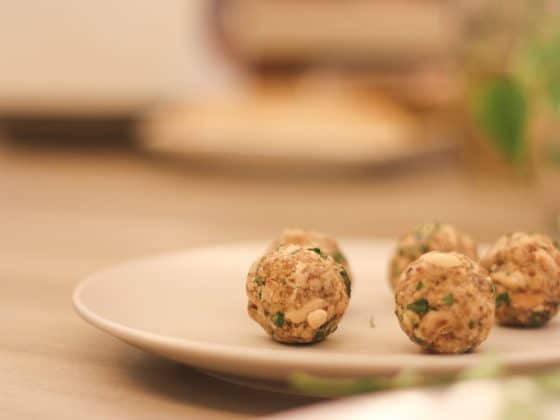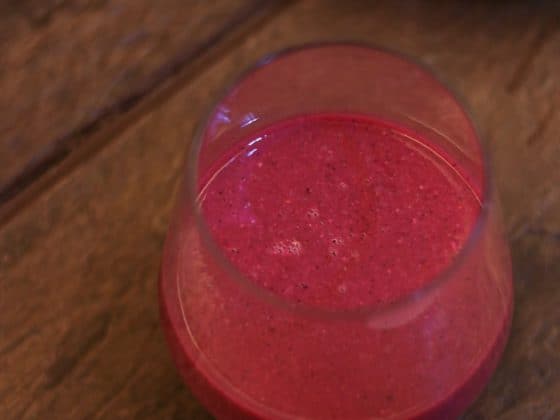Your baby’s sense of smell plays an important part in his or her development. Smell has a strong connection with your baby’s emotions and plays a key role in the bonding process with your baby.
Do you know that your baby’s nose starts to form around the 7th week of your pregnancy?
By week 10, the receptors that your baby use to detect smells would have already formed. Your baby becomes familiar with the scents that associate with you even when s/he is still in your womb. Your amniotic fluid carries the scent and flavors of the food you eat, similar to your breast milk. This means that whatever products the mum use and put on the skin, will affect the baby’s sense of smell directly.
Your newborn has an extremely sensitive sense of smell. The sense of smell is processed by a part of the brain that also controls memory. Baby can even smell the difference between your breast milk and another mum’s.
Fragrances are commonly added to many personal care products to provide a pleasant scent, including those intended for babies (e.g. shower gels, lotions and oils). While chemical fragrances have a long history of safe use, at sufficiently high concentrations some may act as respiratory irritants or sensitizers. Little data, however, is available on the inhalation exposures to fragrance compounds to infants and toddlers. We do know in extreme cases, babies can react in the following ways when in contact with certain chemicals:
- Interfere with hormone function in the body (endocrine disruption)
- Irritate the skin, causing allergic skin reactions
- Trigger asthma and respiratory symptoms (chest tightness and wheezing)
- Cause infant illnesses
- Impact the neurological system and trigger restlessness, dizziness or concentration difficulty
- Behavioural symptoms in children
- Accumulate in fat and make its way into breast milk
- Irritate the eyes, nose and throat
As parents, we want the absolute best for our kids. Nurturing and parenting our children in an environment that is as non-toxic as possible is the way forward, so their bodies can grow and thrive just as nature intended.
- What goes directly on our bodies? Skincare and personal care products have a huge impact on wellness. That’s because the skin has a microbiome, too, and it plays a big role as one of the body’s first lines of defense. In constant communication with the immune system, the microbes on our skin are incredibly protective, but many toxins and antibacterial products threaten their existence. It’s amazing how many toxic chemicals are in the shampoos, lotions, sunscreens, and soaps on the market today—look at any ingredients list of a grocery store-bought product, and you’ll probably only recognize (or be able to pronounce!) a couple of ingredients. For me, this is the first sign of a toxin-laden product, and an indication that I need to keep searching for something better.
Proactively seek out companies who are committed to selling toxin-free options for parent and child, and look for personal care products with just a few natural ingredients that allow you to nourish your children’s’ skin in a clean, safe, yet luxuriously effective way.
My recommendations
- Florame Organic Calendula Oil – I use this amazing oil on my baby as shower oil, baby massage oil, for nappy care and is great for cradle cap. A must have for your precious newborn.
- Florame Organic Lavender Flora Water – I use this as linen spray. This flora water can calm baby and your baby will sleep better. You can spray on baby after bath, definitely soothing to baby skin.
- Florame Organic Camomile Flora Water – This flora water prevents baby eczema and skin irritation. Calming and soothing too. Can be used as nappy care.
- What surrounds our bodies. Often overlooked by even the most careful natural living enthusiasts, includes all the stuff we bring into our homes like furniture, lighting, wall/window treatments, towels, and clothing. These items may be loaded with nasty chemicals, which can contribute to health issues like allergies, respiratory ailments, and headaches. The World Health Organization’s finding that home air pollution is responsible for 3.8 million deaths every year is a sobering confirmation of how important it is to surround our little ones with only the safest things—especially since with every breath, resting infants take in significantly more oxygen per pound of body weight than adults.
Of all the things we surround our kids with, the most extended and intimate contact by far comes from textiles. Pesticide-heavy conventional farming leads to textiles that are rife with toxins. Whether it’s the clothing our kids wear or the fabrics and textiles they come into contact with on a daily basis—think towels, mattresses, sheets, and pillows—the toxins in these products have the potential for serious health issues down the line.
My recommendations
- Purchase organic cotton for baby clothing, towels, sheets, etc.
- Use only toxic free household products such as laundry powder and other cleaning products at home. I like to use tea tree, eucalyptus, and lemon essential oils to do cleaning in the house. You can create your own antifungal spray for the bathroom, shower curtains and tiles.
- Use certified organic essential oils that are with therapeutic properties in your diffuser. I love to diffuse Fine Lavender and Sweet Orange using Florame Ultrasonic Diffuser. I recommend you diffuse 20 mins before putting baby into the room.
Providing a healthy living environment is crucial for children. We can make this planet even a slightly less toxic place for all children. We can made a difference.
Reference
